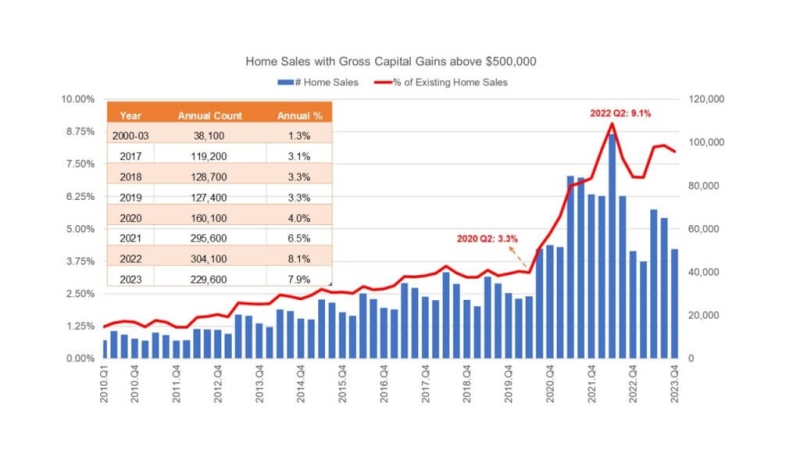Advertisement
Where to find commercial loans
Loan suitability vs. borrower's choice: Which should prevail?E. Robert Levy Esq.borrower's right, loan suitability, fiduciary duty, interest-only loan, ARM
Mortgage bankers and mortgage brokers, along with financial
institutions, have long functioned in a free market premised on the
notion that a borrower should have the right to choose his own loan
product from those made available by originators. These are the
products offered by a mortgage brokerage that has the loan types
that are available from the investors it does business with, or,
the products offered by a mortgage banking firm from the products
it has available and will close in its own name.
The borrower, on the other hand, has the ability to seek out his
originator of choice through the Internet, newspaper ads, direct
mailings or other media. Once having selected a particular
originator, the borrower should be supplied with a clear and
understandable explanation, as well as written disclosures, about
those loan products being offered that appear to suit the
borrower's repayment ability. The products can vary from
fixed-rate, fixed-term loans to pay option adjustable-rate
mortgages (ARMs), interest-only products and others. The borrower
should then be free to make the choice as to which of the loans
will best suit his needs. The responsibility and rewards for this
decision belong to the borrower and not the mortgage banker or
broker!
This is essentially the system in place today that has brought
homeownership at an affordable cost to so many in the United
States. It is the system that brought us record low interest rates
and a variety of prime, alt-A and sub-prime products that resulted
in the highest homeownership rate in our history. In fact, the
mortgage delivery system also was the primary factor in maintaining
the strength of our economy for a long period of time. Should a
system that has resulted in the prosperity of so many - by
providing them with the kind of substantial net worth through home
equity that they might never had achievedotherwise be altered to
remove the very choice that it was premised on? The answer should
be a resounding "no!"
What is threatening this freedom of borrower choice? Many
regulators and others are beginning to look seriously at what is
commonly known as "loan suitability," which is akin to the concept
of fiduciary duty in the law. Suitability refers to the notion that
the lender or broker should determine whether a particular loan
product is suitable for a borrower, i.e., whether it meets that
borrower's needs. This connotes both an economic evaluation as well
as non-economic, for if it was simply economic, it would fall
within the category of "ability to repay." Suitability goes beyond
this evaluation to see whether, even with the ability to repay,
there was a better loan product to be selected. That inevitably
requires consideration of all of the borrower's circumstances - at
least those that can be gleaned from the individual, who may not be
willing to divulge everything at that time for a variety of
reasons.
What if a borrower would rather pay less with an interest-only
loan or an ARM because he wants to use the difference in monthly
payment for some other purchase, but an originator, in his infinite
wisdom, finds a 15-year fixed loan more suitable because it builds
equity more quickly? If the borrower's choice of an ARM is
selected, what happens when the same borrower loses his job and
goes into foreclosure but then alleges that he did not get a
suitable loan? Who will prevail? It is very likely that, given the
sympathy for a borrower who is about to lose his home, a court or
jury might very well find that the lender or broker had a duty to
have the borrower close the loan that, in his view, was more
suitable, thereby ignoring the borrower's own preference. Once a
finding is made of lack of suitability, the foreclosure could be
dismissed and the lender or broker held liable, depending on the
wording of the particular legal requirement. The likely expansion
of litigation that suitability requirements would trigger would
also increase costs for the industry that would necessarily be
passed on to borrowers, thereby increasing the cost of credit to
consumers.
The issue is the point at which the buyer's right to choose ends
and the allegedly superior judgment of a mortgage lender or broker
takes precedence. It is inevitable that the subjective judgment as
to whether a loan product is suitable for a borrower will be tested
by the regulators during examinations, as well as the plaintiffs'
bar. The uncertainty that results from the potential for fines,
license suspension or revocation proceedings, and legal liability
would prevent many lenders and brokers from offering loans to
prospective borrowers when suitability is not clear to them from
the outset (if it ever can be, given its inherent subjectivity and
ambiguity). Therefore, many will go without loans that otherwise
would have closed. Suitability requirements can therefore result in
the loss of a borrower's ability to choose a mortgage loan he would
prefer or even preclude him from obtaining any loan at all,
depending upon his circumstances.
Therefore, what appears on the surface to be a fairly reasonable
approach to mortgage lending - namely, a suitable loan requirement
- is, when analyzed properly, a major step toward undermining the
very foundation of the mortgage delivery system in place today. It
can be an extremely negative formula for the consumers who most
need affordable mortgage financing.
Our industry must begin to focus on the positive aspects of
consumer choice and why it is an integral and important part of our
economic system today. We all buy products every day, mortgage
loans included, and we choose them based upon the information
available. In some cases, we make mistakes. That is a right we have
in this country, and simply because mistakes occur from time to
time, we don't change the way the free marketplace functions.
E. Robert Levy Esq. of Woodbridge, N.J.-based law firm Levy & Watkinson PC is
executive director and counsel of the Mortgage Bankers Association of New
Jersey and the New Jersey
Association of Mortgage Brokers. He may be reached at (732)
404-1128.
About the author





